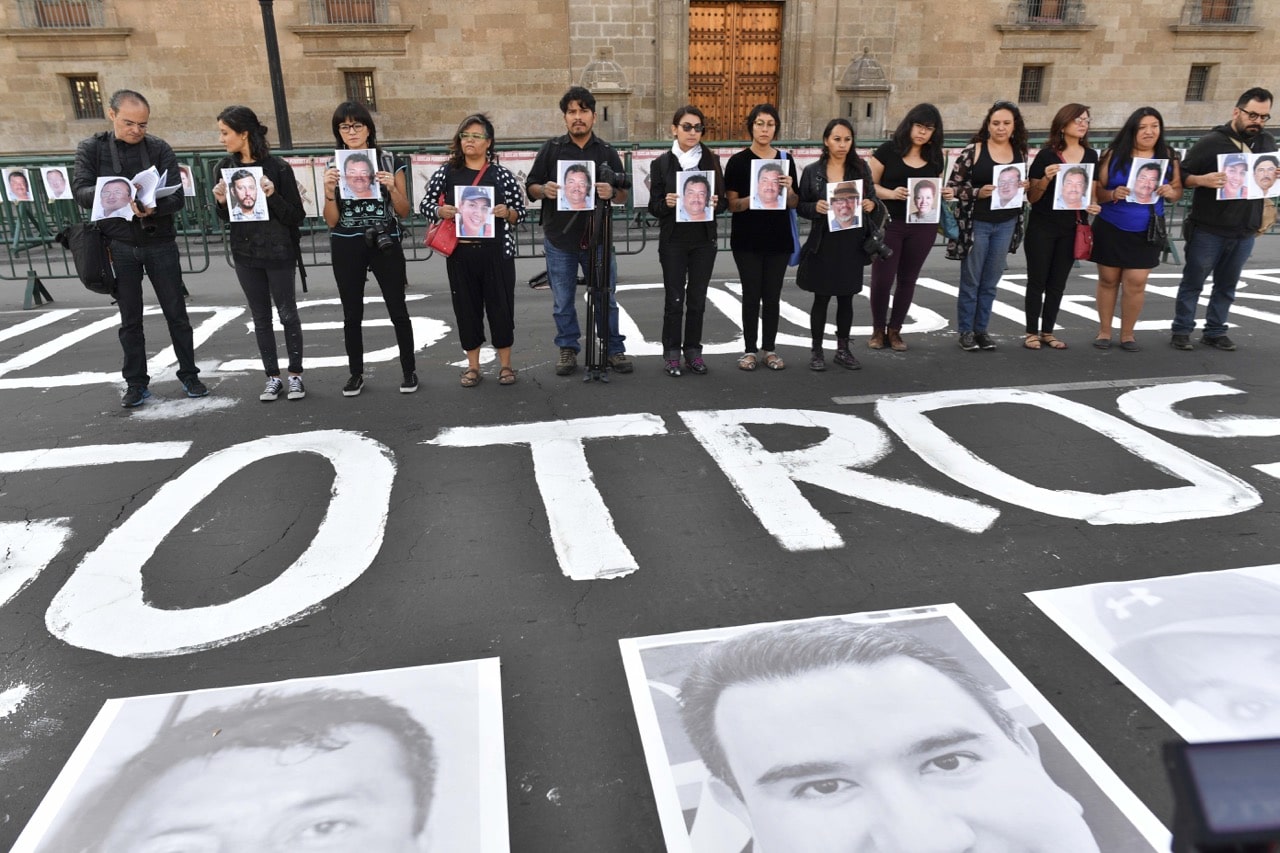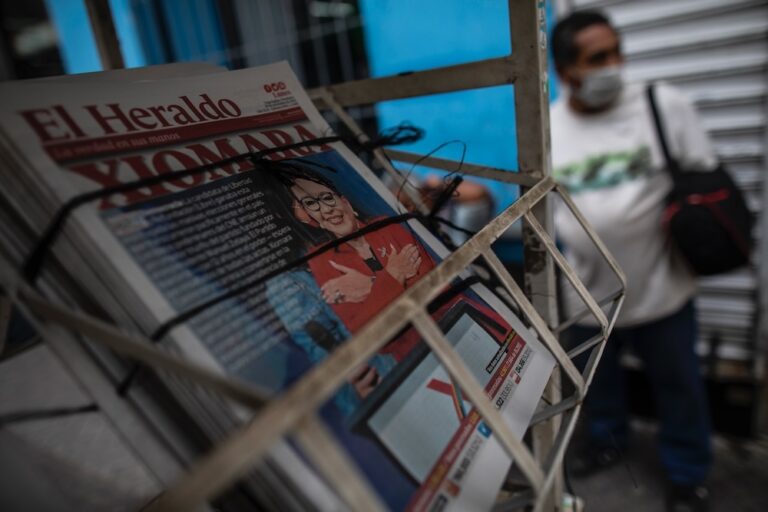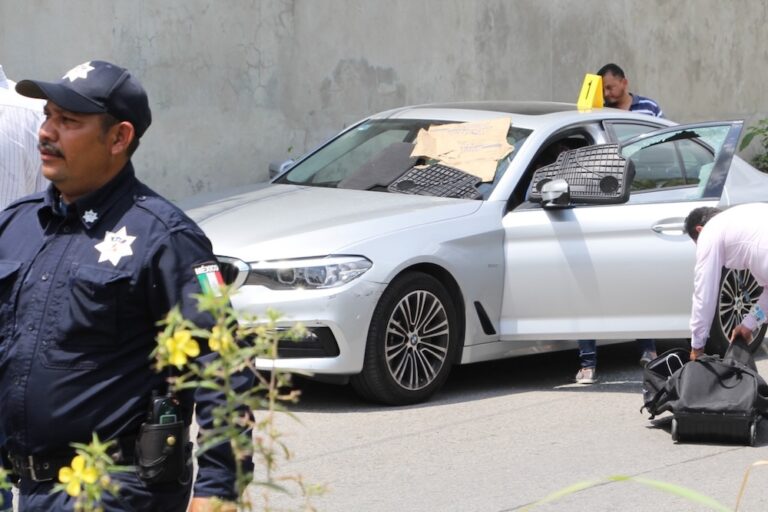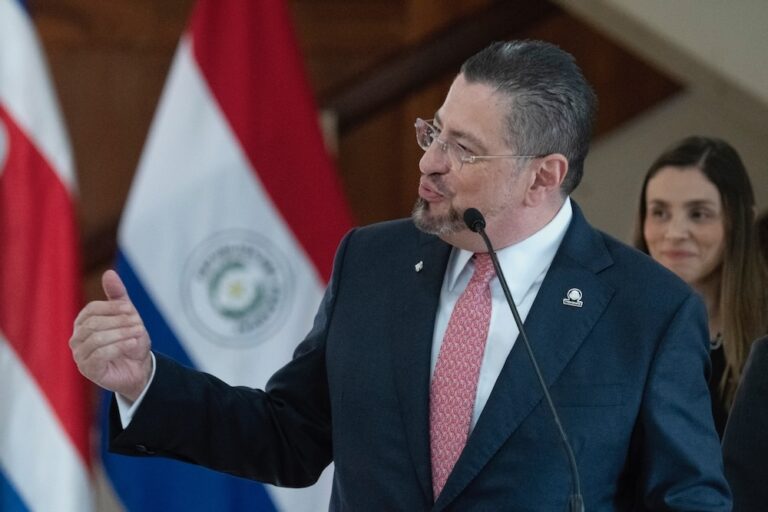A roundup of key free expression news in the Americas, based on IFEX member reports.
To honour our role as global freedom of expression defenders, IFEX launched a campaign to make the link between press freedom and democracy. Here are some of the images we used in order to help spread the message:

Other organisations also commemorated the occasion. Reporters Without Borders (RSF) published its annual World Press Freedom Index. It concluded that 2018 has been characterised by a worsening climate of hatred towards journalists.
Four countries in the Americas were listed among the 20 best nations for press freedom in the world: Jamaica (6), Costa Rica (10), Canada (18), and Uruguay (20.) Cuba, on the other hand, is on the blacklist; it’s considered the worst place in the region, and one of the worst in the world, ranked 172nd out of the 180 countries assessed. Mexico (147), Venezuela (146) and Honduras (141) also appeared near the bottom of the list. Venezuela dropped the most number of spots, falling by six places on the index.
RSF found that there was a slight improvement for free expression on the continent overall. It warns, however, that issues such as impunity, violence against journalists and authoritarian policies continue to affect the press.
A month of death
It was precisely these countries that received notoriety in May as a result of attacks and threats against the press, and against those who sought to freely express themselves.
The situation in Mexico deteriorated, especially between April and May. On 15 May – as many journalists commemorated the first anniversary of Javier Valdez’s death – reporter Juan Carlos Huerta was shot to death while leaving his house in Tabasco state.
Nine days later, on the 24th, a journalist for El Financiero newspaper – Alicia Díaz González – was beaten to death at her home in Monterrey. Nothing was stolen from her home, and it is suspected that she was executed.
On 30 May, Héctor González was beaten to death in Tamaulipas. His marks the sixth murder of a journalist in Mexico since the beginning of 2018. The situation is just as difficult for activists, and anyone who attempts to freely express themselves. Case in point: the murder of campesino leader Manuel Rodríguez, in Puebla. The activist opposed open-pit mining and the construction of an electrical substation.
In Nuevo Laredo, the National Commission of Human Rights reported that since February, there have been at least 31 enforced disappearances, among then 7 minors.
In Cuba, César Augusto San Martín and Rudy Cabrera, journalists for CubaNet news site, were arrested by political police officers as they reported on the Cubana de Aviación plane crash.
The bodies of a journalistic team from El Comercio from Ecuador have yet to be found. The reporters were abducted and murdered by a dissident faction of the FARC in Colombia. The Foundation for Press Freedom (Fundación para la Libertad de Prensa, FLIP) and Fundamedios released a joint statement demanding the Colombian government to honour its commitments to the families of the Ecuadorian journalists.
Nicaragua’s wave of repression continues to manifest through the death and detention of protesters across the country. The demonstrations began in response to the government’s attempt to reform social security, but have now evolved into a general protest against Rafael Ortega’s government.
Research and feminism
Not all is lost, however. There were several regional journalism initiatives dedicated to fighting for a freer, more egalitarian society. Brazil saw the launch of #UmaporUma, a website dedicated to telling the story of every single woman murdered in the state of Pernambuco since the beginning of the year. In addition to telling the women’s’ stories, journalists will also follow up on the investigations of their murders.
In Colombia, FLIP and the Green Lantern Centre for Internet and Society (centro de Internet y Sociedad Linterna Verde), created a gender polygraph to monitor how gender is spoken about by presidential candidates and their staff. The project will analyse over 45 million entries on Facebook and Twitter.
In Chile, several universities were occupied by students. While sit-ins are a common approach to advocacy across Latin America, this occupation took a new approach: it was a feminist action. The activists called for better protocols in penalising sexual harassment and assault at universities. They also called for more psychological support for survivors.
In Brief
The Caribbean: The Association of Caribbean Media Workers called for an increase in efforts to improve transparency in regional political processes, in an effort to build societies with greater freedom of expression.
United States: Journalist Jenni Monet, who was arrested a year ago while covering an anti-pipeline protest, was ruled innocent on charges of trespassing, in what has been referred to as “a great day for journalism.”
Canada: Members of anti-immigrant group “Atalante” barged into Vice media’s offices in Quebec, causing a ruckus and tossing papers around.
Ecuador: A change in framework and slow transition: This is how Lenin Moreno’s first year in government can be described. From the onset, Moreno has demonstrated a new approach to governance, one that is non-confrontational and open to dialogue.
Peru: The OAS will sponsor a prestigious Latin American Investigative Journalism Prize, which has been distributed by the Institute for Press and Society (Instituto Prensa y Sociedad, IPYS) and Transparency International since 2002.
Argentina: Photographer Roque Azcurraire was violently attacked and arbitrarily detained by the Argentinean prefecture.



